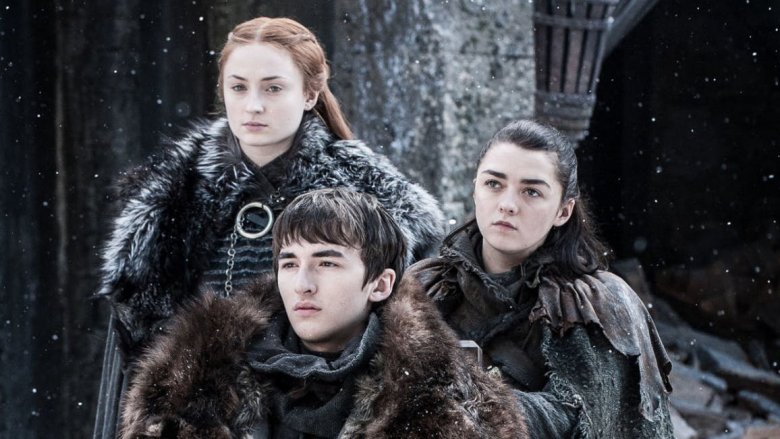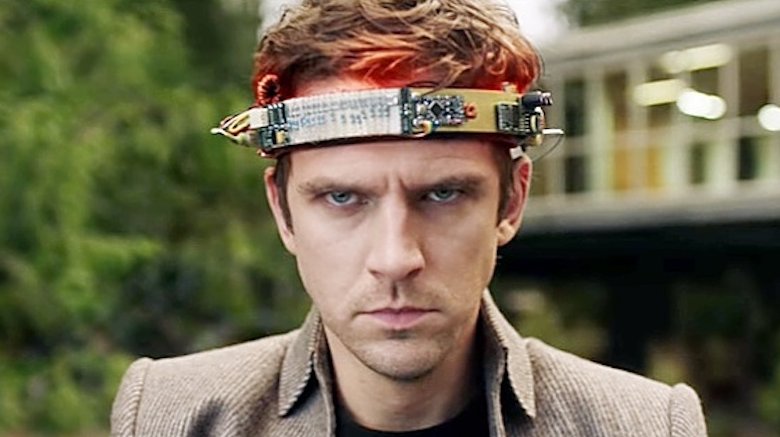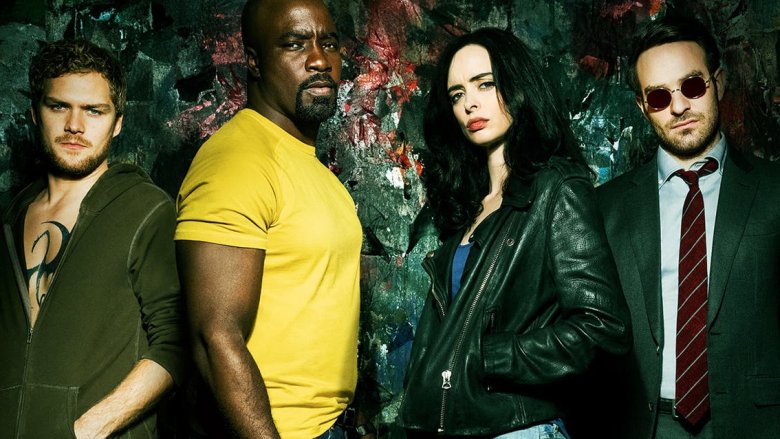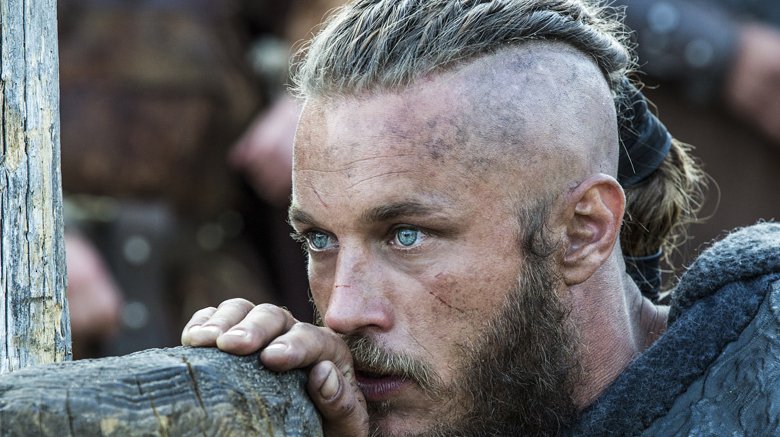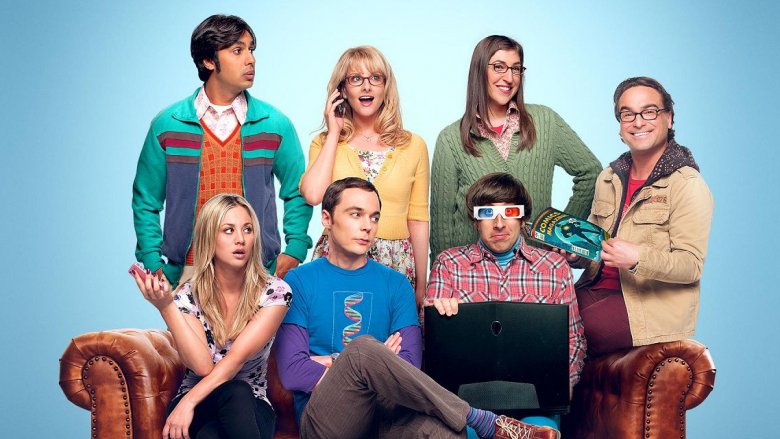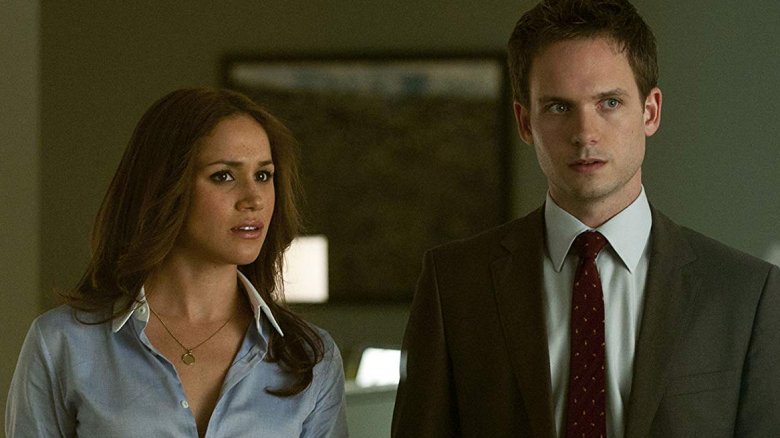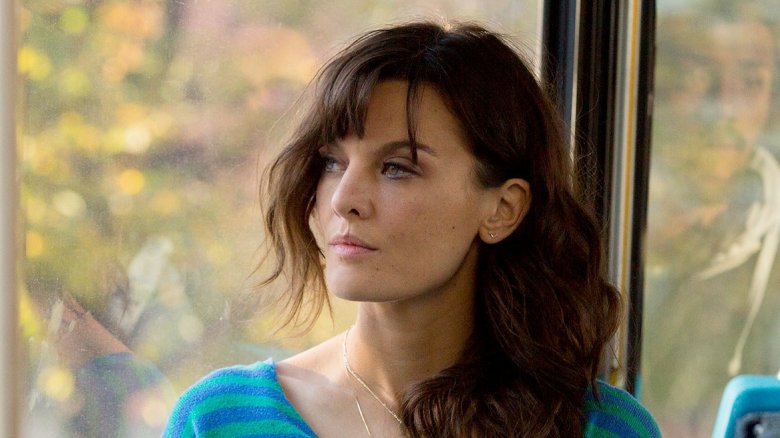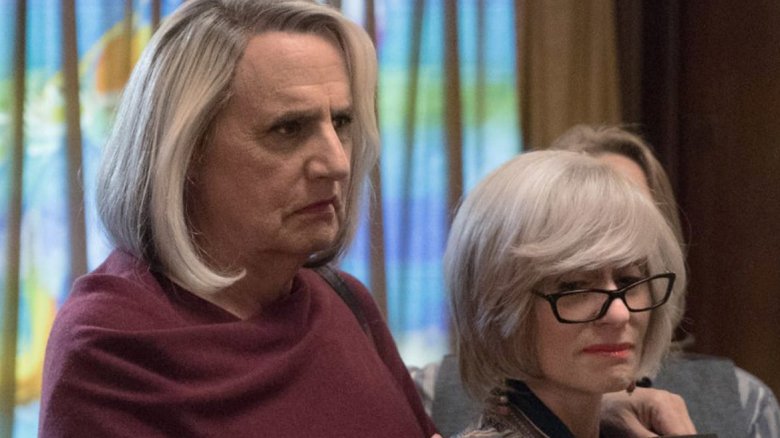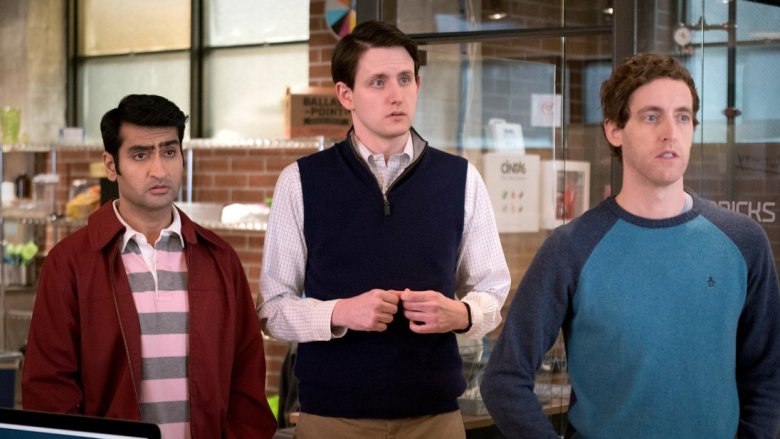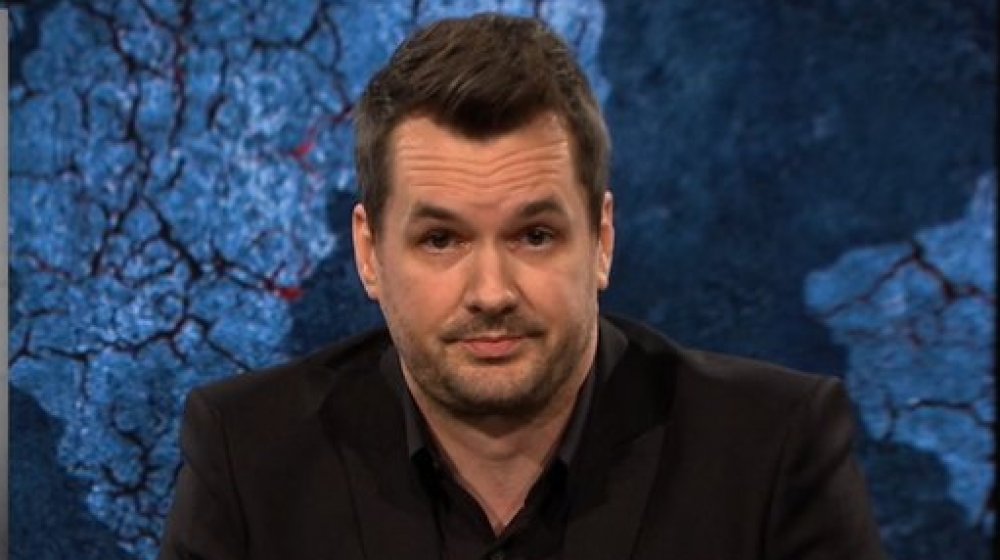The Real Reason These TV Shows Were Canceled In 2019
All things must end. Well, all television shows must end... except 60 Minutes and The Simpsons, that is. A handful of indefatigable shows that get renewed year after year because they still draw big viewership and the people involved want to keep doing what they do for the foreseeable future, but for the remaining 99.9 percent of all other television and streaming series, an ending is ultimately on the horizon, even if the show in question is a critically acclaimed smash hit.
Lots of shows have announced that they won't be around after 2019 — letting fans know in advance to start the process of saying goodbye to beloved characters, and giving writers a chance to prepare a fitting sendoff. Why shut down a well-liked series? Because actors leave, creators finish telling their stories, or a network is ready to move on. Here's a look at all the current TV shows that will have told all the stories they have to tell by the dawn of the 2020s.
Legion (FX)
Legion just isn't the kind of show that can go on forever. For one thing, the possibly real, possibly not-real adventures of David Haller (Dan Stevens), an institutionalized man who doesn't quite have a grasp on reality (or his burgeoning superpowers) is so wildly out there — creator Noah Hawley and his writing staff can't keep up that pace forever. They've also got to advance the story to a certain place — Legion relates to the world of the X-Men, as Davis is the mutant son of the famed Professor X.
FX announced that the twisty, engrossing sci-fi hit will conclude with its upcoming third season, set to air in the summer of 2019. Fortunately, three seasons is exactly how long Hawley wanted to continue the series. "I think endings are what give stories meaning," Hawley said at a Television Critics Association event. "I always thought about this as a complete story, and it felt like three acts of a story."
Gotham (Fox)
Batman has never not been popular. After decades of comics titles, the Tim Burton-launched quadrilogy of films on the '80s and '90s, a slew of animated series, and Christopher Nolan's "Dark Knight" trilogy, fans of brooding Bruce Wayne and his rogue's gallery of colorful, Gotham City-terrorizing villains have become pop culture fixtures. Then there's Gotham, a clever reimagining of the Batman mythos, a, Muppet Babies-like approach that chronicles young Bruce Wayne, a not-yet-seeen-it-all Commissioner Gordon, and proto-versions of the Joker, the Penguin, and the Riddler. The show has to build to the creation of Batman, ensuring that it could never be open-ended and run forever; recognizing this, Fox renewed Gotham for a fifth and decidedly final season during its presentation of its 2018-19 programming slate
Gotham fans should feel lucky the show got another season at all. It ranked a not-great #129 in the 2017-18 TV ratings, and survived a cancellation massacre at Fox — execs got rid of Brooklyn Nine-Nine, The Mick, Lucifer, The Exorcist all in one fell swoop.
Game of Thrones (HBO)
HBO's juggernaut hit Game of Thrones is probably the last "appointment viewing" show on television. In the age of Netflix binge-watching and DVRs, millions still watch the show as it airs or on HBO Go on Sunday nights, both to avoid online spoilers and because they need to know what happened with Jon Snow, the Lannisters, and the Mother of Dragons as soon as possible. Based on the series of bestselling fantasy novels by George R.R. Martin, the Westeros saga has captivated viewers since 2011, but its eighth season — six episodes, most with an extended length — will be its last, meaning audiences may finally know who ultimately sits on that Iron Throne. Why put millions through the agony of a Thrones-free world? Because that's the end of show creators D.B. Weiss and David Benioff's calculated storytelling plan. "From pretty close to the beginning, we talked about doing this in 70 to 75 hours, and that's what we'll end up with," Benioff told Deadline. Also, Game of Thrones isn't like other shows with self-contained episodes or even plot arcs that last for a season. "We're trying to tell one cohesive story with a beginning, middle, and end."
Netflix's Marvel shows
Along with the intricate, elaborate, interconnected big-budget films of the Marvel Cinematic Universe, the comics brand has developed a separate world of intertwined TV shows. In the same way that standalone movies like Thor and Captain America culminated in the team-up Avengers movies, Marvel launched four shows on Netflix's streaming platform: Jessica Jones, Daredevil, Luke Cage, and Iron Fist, which all led up to Marvel's The Defenders. The shows pushed the envelope on what a comics-adapted show could do — Daredevil racked up a 92 percent rating on Rotten Tomatoes, and Krysten Ritter earned praise as alcoholic strongwoman/investigator Jessica Jones, for example. With so much comics material to explore, Netflix could've run all five shows (and post-Defenders entry The Punisher) indefinitely... but it's all been called off. Apart from the already produced third season of Jessica Jones, set to air in 2019, there will be no more Marvel shows on Netflix. Forbes speculates that it's just business: Disney owns Marvel, and, in advance of launching its own streaming service, Disney+, the House of Mouse has been pulling out of streaming deals (or not renewing them) with companies that will soon be competitors.
Vikings (History Channel)
At some point, History Channel realized that historically-based TV programming could include more than just World War II documentaries. In 2013, the channel delved into scripted shows for the first time with Vikings, perhaps the most violent TV series of all time that's technically educational, exploring the lives, families, and seafaring fights of eighth century Norse warrior Ragnar Lothbrok (Travis Fimmel) and his kin. (It's like Game of Thrones, but possibly sort of real!)
Creator and writer Michael Hirst based on the show on the written sagas of Lothbrok, so Vikings is based on a real story, and a real story that ends. To tell the complete story is all he set out to do, and over the course of six seasons of record-setting ratings for History, he accomplished that — so the decision to end Vikings was his. "I always knew where I wanted the show to go and more or less where it would end if I was given the opportunity," Hirst told Variety. "We stopped shooting the final episode in November last year and I felt that I'd said all I needed to say about Ragnar and his sons."
Broad City (Comedy Central)
On its surface, Broad City is merely a wild comedy about two young women dealing with nutty characters and situations in New York City, but its five seasons were low-key groundbreaking. It's arguably the first New York-based comedy that didn't glamorize New York; Abbi and Ilana (co-creators Abbi Jacobson and Ilana Glazer) do battle with a grimy, confusing, apathetic and expensive Big Apple. Broad City is also the rare show to star two women, and the core of its story is the deep, unconditional love between these best friends — and how friendship propels a person through their twenties, particular when they're flailing in the big city, on their own for the first time. But now that the stars/creators and their characters have aged out of that period, the show must end. "The show was always really about what New York is like in your twenties, from these two specific points of view," Jacobson told TV Line. "But I think it didn't really click in that that was what the show was about until we were in our thirties. It's supposed to exist in your twenties. It's a flash-in-the-pan kind of thing, and we wanted to stay true to that."
The Big Bang Theory (CBS)
Even at the end of its 11th season, The Big Bang Theory's gang of socially awkward California scientists managed to bring in huge numbers — it was the top-rated show on broadcast TV for the 2017-18 season. In advance of its 12th season — in which it would surpass Cheers to become the longest-running three-cameras-and-a-laugh-track sitcom in history — TV executives negotiated seasons 13 and 14. That's when Jim Parsons, who makes roughly $1 million per episode to portray quirky genius Sheldon Cooper, balked. According to Entertainment Weekly, the four-time Emmy winner said no to $50 million for two more seasons.
After an August 22, 2018 table read of an upcoming episode, according to Deadline, Big Bang co-creator and executive producer Chuck Lorre gathered the cast in his office. That's when a tearful Parsons told his castmates that he intended to leave the show at the end of the season. And then Lorre announced that the current season would be the last one for everybody — that he'd rather end The Big Bang Theory then make it without Jim Parsons (or Sheldon Cooper).
Suits (USA)
Over the last decade, USA has established itself as a major player in quality cable television with a slate of breezy, light dramas usually involving some element of the law and starring attractive people. The network's slate of hits includes Psych, White Collar, Royal Pains, and Suits, the latter of which centers on Mike Ross (Patrick J. Adams), who's a brilliant attorney despite his lack of a law degree. Winning case after case while maintaining his secret, Mike meets his match in paralegal Rachel Zane (Meghan Markle). The show's juicy legal and romantic storylines brought in millions of fans... including Prince Harry of the U.K. He and Markle fell in love, and got married in a royal wedding for the ages in 2018. Because she'd have to live in England and devote her life to charity work and public appearances, Markle had to leave Suits at the end of the show's seventh season. Adams figured that was a good time for him to leave, too, and Suits writers crafted a nice exit for the couple: They got married and moved to Seattle to run a law firm. Suits returned without two of its main characters, which proved too much of a loss to weather. Producers called it a day, choosing to end the show in 2019 after season 8 and a 10-episode season 9 to focus on Pearson, a spinoff starring Gina Torres' character.
SMILF (Showtime)
HBO isn't the only destination for quality programming on cable networks that cost a few extra bucks a month. Showtime has made a name for itself in recent years with critically acclaimed and awards-garnering fare such as Homeland, Shameless, Ray Donovan, and The Affair. In 2017 it debuted SMILF, a dark, gritty comedy from the mind of actress Frankie Shaw. The Mr. Robot co-star created, wrote, directed, and starred as Bridgette, the titular single South Boston mother with a sex drive and a social life. The show attracted a sizable audience and a second season was quickly ordered, but controversy that reared its head while it was airing directly led to SMILF's early and abrupt demise.
In December 2018, SMILF writers reported to the Writers Guild of America that Shaw had separated staffers by race. Co-star Samara Weaving claimed that Shaw forced her to film a nude scene despite a "no-nudity" contract clause. "After weighing a variety of factors, Showtime has decided that SMILF will not move forward for a third season," the network said in a statement in March 2019.
Transparent (Amazon)
Transparent aggressively evolved over its three seasons. The quiet, subtle-to-a-point of introverted Amazon series began with a premise never before explored on American television: Jeffrey Tambor starred as Maura Pfefferman, a college professor who finally starts living his truth: that he identifies as a woman. She is, in other words, a "trans parent," and the show explores the effect on Maura's ex-wife and three grown children. Over its four seasons, Transparent ambitiously expanded into a show about not just gender identity, but sexual and cultural identity, too, particularly the Pefferman family's exploration of their Jewish faith and background. But Maura transitioning to life as a woman remained the core theme, which would be a tough angle to take, once producers and Amazon fired Tambor. The company launched an investigation after cast member Trace Lysette accused Tambor of multiple acts of sexual harassment, and one instance of assault; Tabor's assistant Van Barnes additionally accused the actor of inappropriate behavior. With Tambor gone, the show's writers decided to wrap up the series with a movie finale — and a musical at that — in which the death of Maura will figure prominently.
Silicon Valley (HBO)
It's the rare television series that gets to leave the airwaves on its own terms. The really popular and the critically acclaimed shows are usually the ones that get to determine their own exit strategy — Seinfeld wrapped in 1998 when star and co-creator Jerry Seinfeld thought it was time to move on, refusing a huge paycheck to continue. Another much-awarded series joining that rare club: Silicon Valley. HBO's brutal tech satire, centered on the slow, awkward, and often humiliating development of a company called Pied Piper, will end at the conclusion of its sixth season, set to air in 2019.
Why kill off such a good thing? Parsing a statement about the pre-emptive cancellation issued by co-creators Mike Judge and Alec Berg reveals that not only is it time to move on, but that the writers might be out of ideas. "We'll miss it desperately, but we've always let Pied Piper's journey guide the way, and Season Six seems to be the fitting conclusion," Judge and Berg said. "At a certain point, there's only so much we can do to make the world a better place."
The cancellation isn't entirely surprising. Berg is otherwise quite occupied as a writer and producer on HBO's Barry, while Silicon Valley itself was plagued by behind-the-scenes drama regarding the exit of cast member T.J. Miller.
Runaways couldn't run away to Disney+
While the Marvel Cinematic Universe (with its various and assorted Avengers movies) dominated the multiplex, plenty of Marvel fare could be found on the small screen. ABC had Agents of S.H.I.E.L.D. and Agent Carter, while Netflix had The Defenders and solo series like Jessica Jones, Daredevil, Luke Cake, and Iron Fist. Staring in late 2017, Hulu offered Marvel's Runaways. Based on an early 2000s comic by Brian K. Vaughn, it concerned a team of teenage superheroes who join forces stop a horde of villains who just so happen to also be their parents. Season 3 of the series, which debuted in late 2019, will also be the show's final season.
Why would Hulu cancel a Marvel property in the same year that Avengers: Endgame became the biggest box office hit in history? Chalk it up to corporate reorganization. After its acquisition of Fox, Disney now totally controls Hulu. In November 2019, Disney launched streaming service Disney+, which will be the home of a number of series built around Marvel properties... another part of the Disney portfolio. The House of Mouse is actively working to get its shows off of rival streamers and onto Disney+, having already pulled the plug on the Marvel Netflix shows. It would seem that Disney, Marvel, and Kevin Fiege don't want Runaways, because it's a Hulu show.
Jim Jeffries of The Jim Jeffries Show had a bigger show in mind
One of Comedy Central's more notable successes in recent years is The Jim Jeffries Show. The titular straight-shooting, often foul-mouthed and scandalous Australian comedian hosts the weekly talk show in which he reports on news and pop culture and offers up his hot takes, along with satirical remote segments filmed around the planet. Big-time movie star Brad Pitt put in multiple appearances as the show's weatherman.
The Jim Jeffries Show ultimately proved to be a victim of its own success. It so increased the visibility, popularity, and marketability of its star that he left for bigger show on a bigger network. The last episode of the series' third and final season aired on November 19, 2019, as NBC just ordered a sitcom pilot from Jeffries. The comedian co-wrote the script for the show, on which (if picked up to series) he'll star as a slightly fictionalized version of himself.
